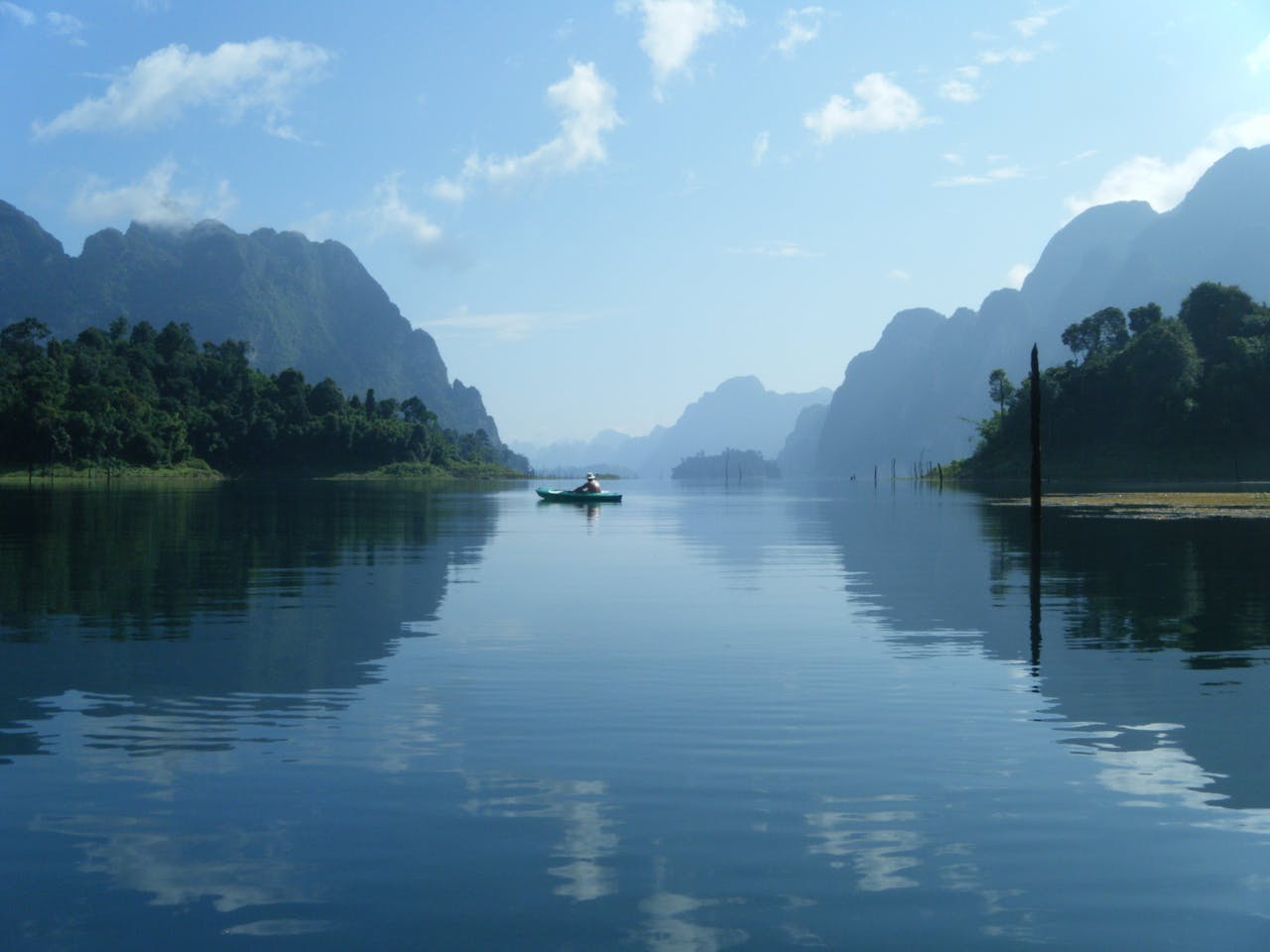Introduction
For many people, travelling is an exciting experience. It is a chance to break free from everyday routine, get to know new cultures and immerse yourself in unfamiliar environments. While most people view travel as a social activity done with friends or family, the number of individuals choosing to travel solo is increasing. For some, it is a way to get away from everything, while for others, it is a way to challenge themselves and grow. Travelling solo brings unique joys and challenges, and this article will explore both aspects of this incredible journey.

Table of Contents
The Joys of Traveling Solo
1. Freedom and Independence
Perhaps the most appealing aspect of solo travel is the feeling of independence it brings. When you travel solo, you are free to go wherever you want, whenever you want. If you want to spend an extra day in a particular city, wake up early to watch the sunrise, or change your itinerary completely, you can do so without any arguments. This freedom allows you to be completely spontaneous and shape your trip in the way that feels most authentic to you.
2. Self-discovery and personal growth
Travelling alone presents a great opportunity for self-reflection and personal growth. When you’re outside of your comfort zone, you learn more about your strengths, limitations, and preferences. Navigating new places, communicating in foreign languages, and handling unexpected situations on your own promotes resilience and self-reliance. Many solo travellers return from their trips with a deeper understanding of themselves, building confidence from overcoming challenges and managing their emotions in unfamiliar situations.
Being alone in a new environment also provides a rare opportunity for introspection. With no one else to focus on, solo travellers often reflect on their own lives, aspirations, and values. This can lead to personal insights, helping individuals make decisions that are more aligned with their authentic selves.
3. Connect with locals
When you travel with others, it’s easy to stay in your group, but travelling solo allows you to connect more with locals. Without the convenience of a companion, solo travellers often strike up conversations with strangers, learn about local customs or be invited to community gatherings. These connections provide a richer, more immersive travel experience. Whether it’s sharing a meal with a local family or making small talk in a market, solo travellers often report that these interactions are some of the most memorable parts of their trips.
4. Customized experiences
Travelling solo allows for a completely customized experience. Without having to cater to someone else’s preferences, you can create a trip that matches your likes and interests. If you’re an art enthusiast, you can spend hours in museums without feeling guilty that someone else is waiting for you. If you love hiking, you can spend an entire day exploring the outdoors. Travelling alone means there are no compromises – you can do what you want to do, the way you want to do it and at your own pace.
5. Increased awareness
Travelling alone often leads to a heightened sense of awareness. When there’s no one to distract you, you become more aware of your surroundings and experience everything more clearly. The subtle Flavors of a new dish, the textures of a street musician’s tune or the intricacies of ancient architecture come into focus more clearly. People who travel alone often feel more present during their trip, deeply perceiving the sights, sounds and sensations around them.
6. Empowerment
There is something incredibly empowering about travelling on your own. Taking responsibility for your itinerary, managing your transportation, and navigating unfamiliar places can build confidence. Over time, as you overcome obstacles and adapt to new challenges, you will likely feel a new sense of strength and capability. Many solo travellers return home with a deep sense of accomplishment, having proven to themselves that they can handle and thrive in the unknown.
The Challenges of Solo Travel
Despite the many joys of travelling alone, it also comes with its challenges. These obstacles can be emotional, logistical, or even physical. However, knowing what to expect and how to overcome these difficulties can help make solo travel more rewarding.
1. Loneliness
One of the most significant challenges of solo travel is loneliness. While solitude can be refreshing for a while, being alone for long periods can lead to feelings of sadness or emptiness. This is especially true if you are used to being around people or if you travel to a place where you don’t speak the language. The feeling of loneliness is especially strong when you wish you had someone to share your experience with during shared experiences, such as eating a meal or seeing beautiful moments.
However, loneliness doesn’t have to mean you travel alone. Many solo travellers overcome these feelings by staying in social accommodations, such as hostels, joining group tours, or attending local events. Actively connecting with other travellers or locals can help combat these feelings.
2. Safety concerns
Travelling alone, especially for a woman, often raises concerns about safety. Without a companion, you may feel more vulnerable to fraud, theft, or harassment. It may also feel daunting to walk around unfamiliar areas alone, especially at night. In some countries, cultural norms for women travelling alone can present additional challenges, and safety should always be a top priority.
To minimize these risks, solo travellers need to take precautions such as thoroughly researching their destinations, being mindful of local customs and staying in well-reviewed accommodations, avoiding risky areas and being aware of their surroundings. Carrying emergency contacts, sharing your itinerary with loved ones back home and investing in travel insurance can also provide additional peace of mind.
3. Decision Fatigue
When you travel with others, decisions are often shared. One person might choose the restaurant, another the sightseeing, and so on. However, when you travel alone, every decision rests on your shoulders. From where to eat to which mode of transportation to use, making decisions can be overwhelming, especially if you’re visiting a new place or dealing with unexpected changes.
To avoid decision fatigue, solo travellers should create a flexible travel plan and give themselves breaks from constantly making decisions. Taking a day off to relax or letting go of rigid expectations can help ease the pressure.
4. Logistics and Planning
Traveling solo requires careful planning. While it may be easy to divide responsibilities when travelling with others, solo travellers must handle everything on their own. This includes booking accommodations, organizing transportation, and navigating language barriers or currency exchange. The burden of arranging everything can feel overwhelming, especially if something goes wrong, such as a missed flight or lost luggage. Still, planning tools like travel apps, guidebooks, and forums can help make logistics more manageable. Arranging airport pickups in advance, having a reliable navigation app, and learning basic phrases in the local language can make a huge difference. Over time, many solo travellers become adept at managing these logistics, developing skills they can apply to future trips.
5. Limited photos
If you’re a traveller who enjoys capturing memories, travelling solo can limit your photo opportunities. Without a companion to take your pictures, you may find yourself relying on selfies or asking strangers to snap photos. This may seem trivial, but for many people, taking good photos of themselves in new places is an important aspect of their travel experience.
Fortunately, there are creative solutions to this. Many solo travellers invest in portable tripods or use timed photography features on their phones or cameras. Another way is to connect with other travellers or locals, who are often happy to take a photo in exchange for their photo.
6. Increased costs
Travelling solo can sometimes be more expensive than travelling with others. You won’t have the benefit of splitting accommodation costs, transportation fares, or meals. Many hotels and tours are designed for groups or couples, and solo travellers may face higher rates for lodging alone or private services. In some cases, destinations or activities that are more fun in groups – such as guided hikes or boat tours – may not be as affordable or accessible for solo travellers.
Budget-conscious solo travellers can solve this problem by staying in more affordable accommodations like hostels or Airbnb, using public transportation, and looking for free or low-cost activities. Many cities also offer walking tours, museums, and cultural experiences that are either cheap or free.
Strategies for Successful Solo Travel
Solo travel is a rewarding experience if approached with the right mindset and preparation. Below are some strategies to ensure a smooth and enjoyable solo adventure.
- Research Your Destination
It’s important to understand the culture, customs, and general layout of your destination before you arrive. Researching major areas of interest, local safety tips, and transportation options can help you feel more prepared and confident. Whether it’s knowing the safest neighbourhoods to stay in or navigating the local subway system, a little preparation goes a long way.
2. Stay connected
Staying in touch with friends and family while you’re on the go can help reduce loneliness and provide a sense of security. Regularly updating your loved ones about your location and plans ensures that someone knows where you are in case of an emergency. Plus, staying connected with fellow travellers through social media groups or travel forums can provide valuable tips and companionship along the way.
3. Pack smartly
Packing light is a must for solo travellers since they won’t have a companion to share the load. Consider multi-purpose items, such as clothing that can be worn in a variety of weather conditions, and always keep important documents like your passport and travel insurance easily accessible.
4. Embrace flexibility
Travelling solo is best when you’re open to change and prepared to go with the flow. Unexpected circumstances, such as delays or bad weather, can disrupt even the best-made plans. Embracing these moments of uncertainty and accepting them as part of the adventure can turn challenges into memorable experiences.
Conclusion
Travelling solo is a life-changing experience that combines the thrill of exploration with the opportunity for personal growth. The joys of independence, self-discovery, and cultural immersion far outweigh the challenges for many travellers. While travelling solo brings difficulties such as loneliness, safety concerns, and decision fatigue, the rewards of empowerment, confidence, and unforgettable memories make it an incredibly enriching experience.
Whether you’re seeking adventure, peace, or personal growth, travelling solo offers a unique opportunity to connect with yourself and the world, unmatched by any other type of travel. The keys to a successful solo trip are preparation, an open mind, and a sense of adventure, all of which will lead to a deeper appreciation for the destinations you explore and for yourself.


